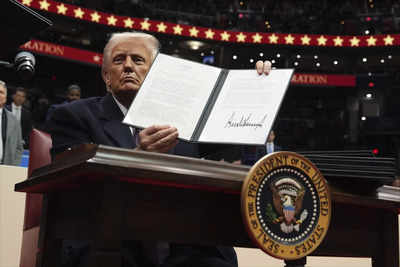On his first day back in office, President Donald Trump signed an executive order to dismantle federal Diversity, Equity, and Inclusion (DEI) programmes. Here’s what you need to know about the decision, its implications, and the context behind it.
What Is DEI?
DEI stands for Diversity, Equity, and Inclusion. These programmes aim to promote fairness and representation in workplaces by addressing systemic barriers that have historically excluded certain groups.
- Diversity: Emphasises the inclusion of individuals from various backgrounds, identities, and experiences.
- Equity: Focuses on ensuring fair treatment, access, and opportunities for all, particularly for underserved communities.
- Inclusion: Aims to create environments where everyone feels valued and can contribute fully.
DEI initiatives often include anti-bias training, mentorship programmes, and funding opportunities for marginalised groups, such as minority farmers and business owners.
What Did Trump’s Executive Order Do?
President Trump’s executive order instructed federal agencies to:
- Place DEI staff on leave: All federal DEI employees were placed on paid leave and are expected to be laid off in the near future.
- Eliminate DEI programmes: Agencies must terminate DEI training, contracts, and initiatives, and take down DEI-focused public websites and social media accounts.
- End
environmental justice roles: Positions and budgets related to environmental justice have been cut. - Review programmes: Agencies are required to review and report all contracts and grants to ensure compliance with the administration’s anti-DEI stance.
The order affects more than 400 federal agencies and could result in over 2.4 million workers losing their jobs.
Why Did Trump Cancel DEI?
The Trump administration argues that DEI programmes are counterproductive and discriminatory. A statement from the White House labelled these initiatives as an “immense public waste” and claimed they create “shameful discrimination” in hiring practices.
Trump advocates for a return to “merit-based hiring,” suggesting that opportunities should be granted solely on qualifications and performance rather than factors like race, gender, or identity.
What Are the Origins of DEI?
The foundation of DEI programmes dates back to:
- The Civil Rights Act of 1964: Prohibited discrimination in employment based on race, religion, sex, or national origin.
- Executive Order 11246 (1965): Issued by President Lyndon B. Johnson, requiring federal contractors to take
affirmative action to promote equal employment opportunities.
DEI gained prominence in federal workplaces under President Joe Biden’s Executive Order 14035 in 2021, which aimed to strengthen diversity and accessibility across the federal workforce.
How Does This Affect Affirmative Action?
Trump’s order revokes key provisions of affirmative action in federal contracts, including:
Requirements for contractors to promote equal opportunities for women and minorities.
Monitoring by the Office of Federal Contract Compliance Programs (OFCCP) to ensure workforce balance.
This follows the 2023 Supreme Court decision striking down affirmative action in college admissions, which ruled that race can no longer be a consideration in selection processes.
What Will Happen to DEI Employees?
DEI staff—ranging from programme developers to training facilitators—are currently on paid leave. They are likely to be dismissed once reviews of federal programmes are completed.
What Are Critics Saying?
Supporters of Trump’s decision argue that DEI programmes:
- Lead to reverse discrimination.
- Waste taxpayer money.
- Undermine meritocracy by prioritising identity factors over qualifications.
Opponents warn that eliminating DEI:
Risks reversing decades of progress in workplace equity and inclusion.
May lead to increased systemic inequities.
Undermines efforts to address historic discrimination against marginalised groups.
What’s Next?
The administration has directed agencies to:
- Submit a full list of DEI-related programmes and personnel by specific deadlines.
- Identify and eliminate any DEI or environmental justice activities.
Federal employees have also been asked to report suspected DEI initiatives within 10 days, as the government seeks to enforce its anti-DEI policies across all agencies. This decision marks a significant shift in federal policy, with the potential to reshape hiring practices, workplace culture, and public-facing initiatives for years to come.




